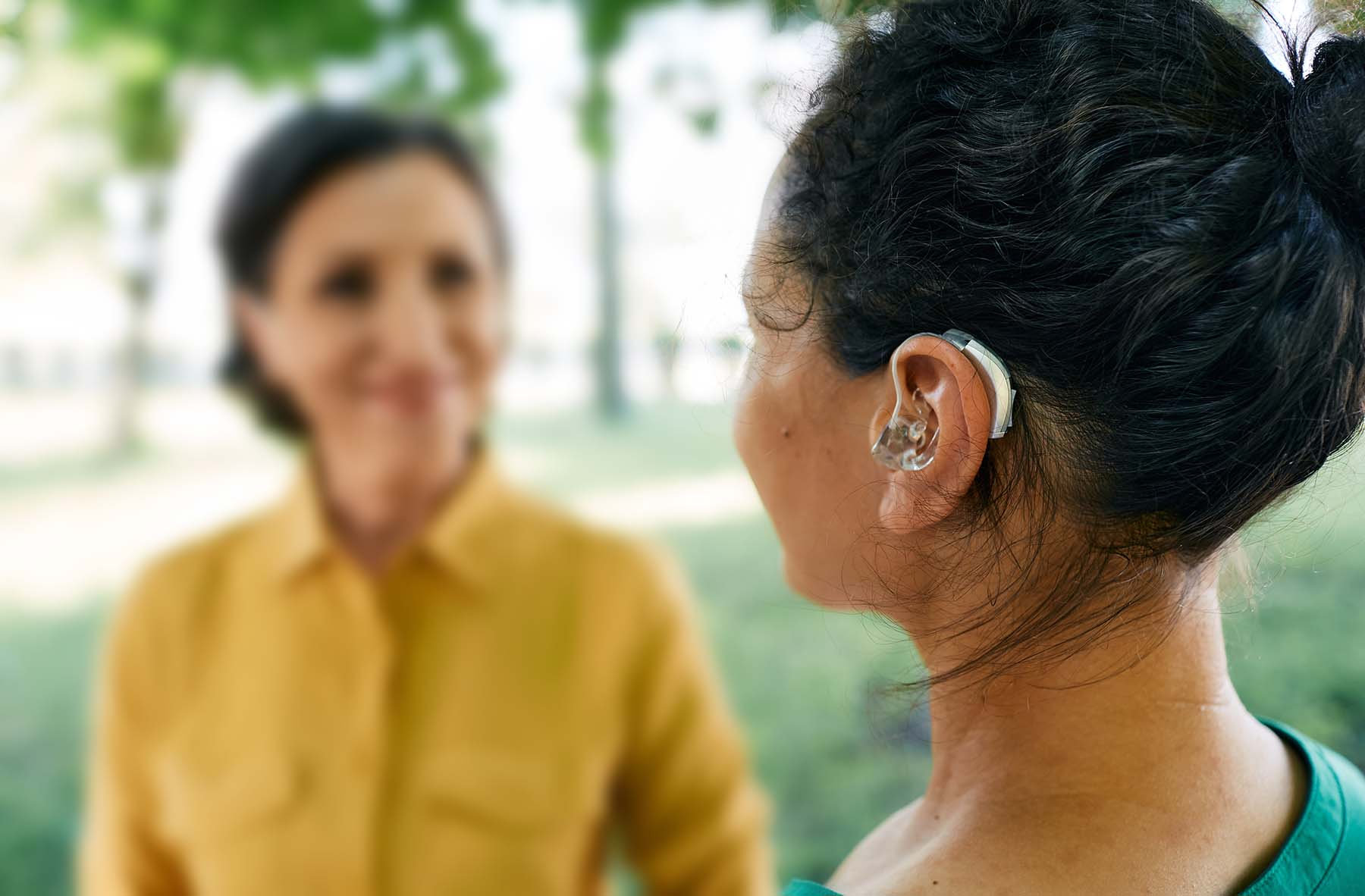FDA Approves OTC Hearing Aids

Here’s the good news: hearing aids are now available without a prescription, which means you can buy these medical devices at a drug store or online without a prior visit to a clinician.
But there are a few things to remember: Over-the-counter (OTC) hearing aids aren’t recommended for everyone.
Without testing from a licensed hearing professional, hearing loss in some people might not be addressed correctly.
OTC hearing aids were just approved by the Food and Drug Administration (FDA) to lower their prices and improve access to this much-needed medical device. About 44 million people in the U.S. have significant hearing loss, says Hillary Snapp, Au.D., Ph.D., associate professor and chief of audiology in the Department of Otolaryngology at the University of Miami Health System.
Age is the best predictor of hearing loss among adults aged 20 to 69, according to the National Institute on Deafness and Other Communication Disorders.
While 2% of adults aged 45 to 54 have disabling hearing loss, that percentage increases to 8.5% for adults aged 55 to 64. For the senior set, the rate jumps exponentially: 25% for those 65 to 74 and 50% for those 75 and older. Unfortunately, most who could benefit from hearing aids and devices aren’t using them.
“The prevalence of hearing aid use has been consistently low, with estimates suggesting around 20% of those who could benefit from them,” says Dr. Snapp.
“This is very concerning because we know that untreated hearing loss is associated with a number of negative health outcomes in older adults such as cognitive decline, reduced physical functioning, social isolation, and feelings of depression.”
Part of the problem, she adds, is the cost of hearing devices — between $1,500 and $6,000 for prescription aids — which limits access for many. In addition, hearing aids are not covered by Medicare, the largest insurance provider in the U.S. for adults aged 65 and older, the most at-risk group for developing hearing loss.
OTC hearing aids may partially address this issue, as prices are expected to range between $400 and $1,500.
But before you settle for the OTC hearing aids solution, Dr. Snapp suggests you consider these caveats:
- OTC hearing aids are intended only for those with mild to moderate hearing loss. Many liken them to readers you can buy at the drugstore without a prescription.
There’s a limit to what these devices can do. If you have severe hearing loss, this is not going to be appropriate for you.
Dr. Snapp
- OTC hearing aids are approved only for use by adults and are not appropriate for managing hearing loss in children.
- Consider seeking professional help before investing money in a device. An audiologist will perform a hearing test, known as an audiogram, to determine the extent of your hearing loss. A professional will also check if your hearing loss is due to an underlying medical condition or a physical problem of the ear.
For example, hearing loss that is associated with dizziness, ringing or buzzing in the ear, pain, or that changes suddenly could be a sign of something more severe and should be evaluated by an audiologist. Hearing loss that is asymmetric or that occurs following an injury should also be evaluated to determine the most appropriate treatment.
- The audiologist will perform a hearing evaluation to help determine the extent and cause of the hearing problem and if an individual would be best served by an OTC device or a prescription hearing aid. An audiologist also helps a patient sort through all hearing treatment options, including determining when a hearing implant may be appropriate.
- OTC hearing aids are self-programmed. In other words, the individual sets the devices themselves without the support of a hearing professional. But some individuals may find that OTCs do not fully meet their hearing needs.
“You have to ask yourself, ‘Are these devices providing the right amount of amplification? Are they meeting my needs?’” Dr. Snapp says.
Dr. Snapp believes the FDA’s move to help more people access hearing aids is a good first step.
We will have to wait to see if more people begin using these devices to determine how successful OTCs are. That kind of information takes time to gather. In the meantime, hearing health should become a priority for all of us, she says.
A major challenge is that hearing loss is often under-recognized in adults. She hopes the introduction of OTCs will help to increase awareness and encourage more people to seek earlier treatment for hearing impairment.
Monitoring our hearing as part of our regular healthcare should become part of the broader strategy to address the barriers to accessing timely and appropriate hearing healthcare.
“You should get your hearing checked regularly,” she adds, “and as early as possible when you notice any degree of loss.”

Ana Veciana Suarez,
Columnist
Ana is a regular contributor to the University of Miami Health System. She is a renowned journalist and author who has worked at The Miami Herald, The Miami News, and The Palm Beach Post. Visit her website at anavecianasuarez.com or follow @AnaVeciana on Twitter.
Tags: amplify sounds, auditory nerve, Cochlear Implants, conductive hearing losstypes off hearing loss, Dr. Hillary Snapp, personal sound amplification products, sound waves
